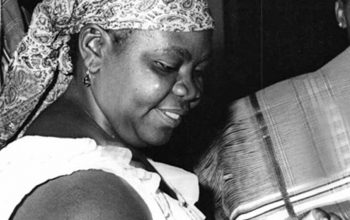Children are for School, not for ‘sale’

WE live in a time where technology is rapidly advancing, where industries are booming and where education is the key to success.
But sadly, there is a sinister undercurrent that continues to drag our nation’s future down—the exploitation of children for labour.
If you have ever walked through Buguruni Market or Kariakoo as a sample, you will see it firsthand: Young boys selling drinking water, hauling heavy loads for traders and teenagers taken from their rural homes to become “house girls” in urban households.
It’s a sad, yet all-too-common sight. It’s no secret that some unscrupulous agents are in the business of exploiting vulnerable families, offering false promises of better life opportunities in the city.
What’s even more unsettling is that these agents are not just hurting the children, but are robbing them of their dignity, education and a future that could be filled with hope and opportunity. Imagine this: A 14-year-old girl, from a remote village, lured to the city with promises of a brighter future as a “house girl.” Instead, she’s thrown into a life of servitude, hidden behind closed doors, deprived of schooling and often mistreated.
The cycle continues, as these agents act as traffickers, not caring about the lives they ruin, only about the money they make. It’s high time we stopped turning a blind eye.
At the market streets of Buguruni and Kariakoo you will never miss some children of school going age -not selling their creativity or talent, but selling water and bags to survive. Children, barely old enough to be away from school, are turned into mini-entrepreneurs who should be learning, not working.
What happened to their childhood? What happened to their right to education and play?
There is also the issue of child porters—young boys, often no older than 18, carrying heavy loads for shopkeepers or customers for a mere pittance. Not only is this a violation of their basic rights, but it’s also a ticking time bomb for their physical and mental well-being. To the government: It’s time to re-enforce the laws that protect children. Let’s stop the agents who are trafficking our youth into servitude.
Let’s stop the exploitation in the market streets. Let’s give our children back their childhood and send them back to school, where they belong. We don’t need more policies. We need stronger enforcement. We need to hold these agents accountable. It’s time to stop letting children be treated like commodities in a marketplace.
Let’s not wait for another tragedy to strike before we act. The future of our country depends on the children we choose to protect today. So, let’s make it clear: Children are for learning, not for labour. Time to step up, government. Take a stand for the children—before it’s too late.





